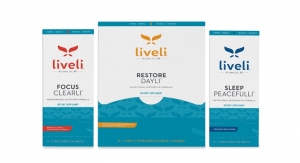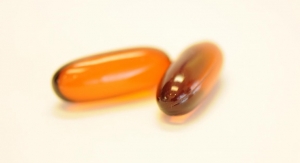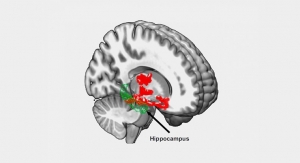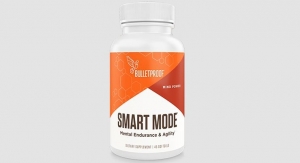08.06.18
A new peer-reviewed study has shown that daily supplementation with the natural antioxidant Pycnogenol can be instrumental in improving the symptoms of Mild Cognitive Impairment (MCI)—a potential risk factor for early onset dementia and other degenerative cognitive conditions.
The study, published in Minerva Medica, tested 87 men between the ages of 55 and 70 who showed signs of MCI. Researchers administered a Mini-Mental State Examination (MMSE) 30-point questionnaire to determine the level of cognitive impairment for each individual. Participants supplemented with 150 mg (three 50 mg capsules) of Pycnogenol daily for eight weeks and their MMSE scores were re-evaluated at the end of the study.
All study participants followed a standard management routine including healthy sleep habits, regular exercise, and low sodium and low sugar meals. Results showed that along with these standard management practices, study participants who supplemented with Pycnogenol had an 18% improvement of their MMSE scores, including improvements in the following areas:
Building on a Body of Cognitive Health Research
This new study builds upon previous research supporting the benefits of Pycnogenol for cognitive health improvement. A study conducted in 2015 and published in the Journal of Neurosurgical Sciences showed that Baby Boomers (ages 55+) experienced increased overall cognitive performance, including for memory, attention and daily decision-making. In addition, a 2008 study in the Journal of Psychopharmacology found that Pycnogenol helps improve numerical working memory as well as spatial memory in seniors.
Pycnogenol is a potent antioxidant shown in decades of research to boost blood circulation and act as a natural anti-inflammatory. Pycnogenol helps endothelial cells produce more nitric oxide (NO) which has multiple effects on brain function. Initially, NO increases blood flow, which improved oxygenation and the transport of nutrients to brain cells. NO regulates neuronal functions and thus contributes to processing signals inside the brain. In addition, NO helps modulate key neurotransmitters such as dopamine, serotonin and norepinephrine. This new study supports previous research examining Pycnogenol’s benefits for reducing venous conditions and managing jet lag symptoms.
The study, published in Minerva Medica, tested 87 men between the ages of 55 and 70 who showed signs of MCI. Researchers administered a Mini-Mental State Examination (MMSE) 30-point questionnaire to determine the level of cognitive impairment for each individual. Participants supplemented with 150 mg (three 50 mg capsules) of Pycnogenol daily for eight weeks and their MMSE scores were re-evaluated at the end of the study.
All study participants followed a standard management routine including healthy sleep habits, regular exercise, and low sodium and low sugar meals. Results showed that along with these standard management practices, study participants who supplemented with Pycnogenol had an 18% improvement of their MMSE scores, including improvements in the following areas:
- Significant enhancement of ability to remember friends and family (31.3% improvement with Pycnogenol vs. 0% improvement control)
- Improvement of remembering where things are (39.4% improvement with Pycnogenol vs. 6.5% improvement control group)
- Increase of ability to learn new gadgets and technology (24.1% improvement with Pycnogenol vs. 3.3% improvement control)
- Greater ability to manage money and finances (39.4% improvement with Pycnogenol vs. 12.5% improvement control)
- Significant improvement of ability to deal with people (19.4% improvement with Pycnogenol vs. 7.6% control)
- In addition, researchers found that the participants who supplemented with Pycnogenol also experienced a 16% reduction in oxidative stress.
Building on a Body of Cognitive Health Research
This new study builds upon previous research supporting the benefits of Pycnogenol for cognitive health improvement. A study conducted in 2015 and published in the Journal of Neurosurgical Sciences showed that Baby Boomers (ages 55+) experienced increased overall cognitive performance, including for memory, attention and daily decision-making. In addition, a 2008 study in the Journal of Psychopharmacology found that Pycnogenol helps improve numerical working memory as well as spatial memory in seniors.
Pycnogenol is a potent antioxidant shown in decades of research to boost blood circulation and act as a natural anti-inflammatory. Pycnogenol helps endothelial cells produce more nitric oxide (NO) which has multiple effects on brain function. Initially, NO increases blood flow, which improved oxygenation and the transport of nutrients to brain cells. NO regulates neuronal functions and thus contributes to processing signals inside the brain. In addition, NO helps modulate key neurotransmitters such as dopamine, serotonin and norepinephrine. This new study supports previous research examining Pycnogenol’s benefits for reducing venous conditions and managing jet lag symptoms.






















